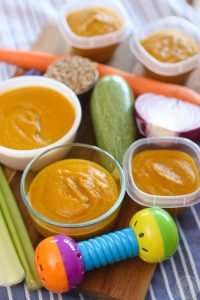Uncooked vegetable puree is a fantastic way to introduce babies to a wide variety of fruits and vegetables. They’re packed with nutrients and can be a delicious and easy first food. This article explores the benefits of uncooked vegetable purees, safety considerations, and tips for creating tasty and nutritious purees for your little one.
The Benefits of Uncooked Vegetable Purees
Uncooked vegetable purees offer several advantages for babies:
Nutrient Rich:
Vegetables are loaded with essential vitamins, minerals, and fiber, all crucial for a baby’s growth and development.
Natural Sweetness:
Many vegetables have a natural sweetness that babies enjoy. This can encourage them to try new flavors.
Exposure to Variety:
Introducing babies to a variety of vegetables early on helps develop a taste for healthy foods.
Texture Exploration:
Uncooked purees can have a slightly different texture than cooked purees, which can be stimulating for babies as they learn to eat.
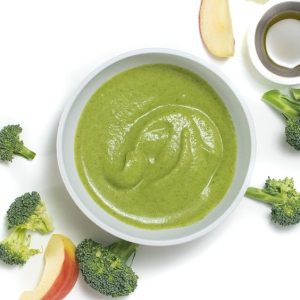
Important Vitamins and Minerals
Here are some of the important vitamins and minerals that babies can get from uncooked vegetable purees:
- Vitamin A: Important for vision and immune function.
- Vitamin C: Supports the immune system and helps with iron absorption.
- Fiber: Aids in digestion and gut health.
- Potassium: Essential for healthy muscles and nerves.
Safety Considerations for Uncooked Purees
While uncooked vegetable purees offer many benefits, there are some safety considerations to keep in mind:
- Choking Hazard: Uncooked vegetables can be a choking hazard for babies who are not yet able to chew effectively. Make sure the puree is smooth and thin enough for your baby to swallow safely.
- Washing is Key: Always wash fruits and vegetables thoroughly before preparing them for your baby. This helps remove dirt, bacteria, and pesticides.
- Spoilage Risk: Uncooked purees may spoil faster than cooked purees. Prepare only what your baby will eat and store leftovers in the refrigerator for no more than a day.
Tips for Safe Preparation
Here are some tips for safely preparing uncooked vegetable purees for your baby:
- Choose fresh, firm vegetables.
- Wash them thoroughly under running water.
- Peel vegetables, if necessary. For example, peel carrots or beets before pureeing.
- Cut vegetables into small pieces. This makes them easier to blend and reduces the choking hazard.
- Puree the vegetables in a blender or food processor. Add a little water or breast milk if needed to achieve a smooth consistency.
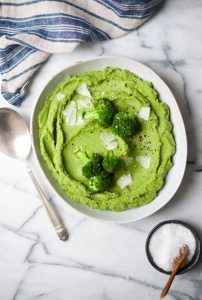
Flavorful and Fun Puree Ideas
There are endless possibilities when it comes to creating delicious and nutritious vegetable purees for your baby. Here are some ideas to get you started:
- Sweet Potato Puree: A classic and easy-to-digest option. Sweet potatoes are naturally sweet and packed with vitamins.
- Avocado Puree: Rich in healthy fats and creamy in texture. Avocados are also a good source of potassium.
- Broccoli Puree: This green powerhouse is loaded with vitamins and has a mild flavor.
- Zucchini Puree: Another mild-flavored vegetable that’s easy for babies to digest.
- Carrot and Apple Puree: A sweet and colorful combination that provides vitamin A and C.
Adding Variety
As your baby gets older, you can experiment with more flavor combinations. Here are some ideas:
- Mix different vegetables together. For example, try a combination of avocado and peas or sweet potato and carrot.
- Add a touch of herbs. Fresh basil or parsley can add a subtle flavor boost.
- Use breast milk or formula to thin the puree. This adds extra nutrients and helps achieve the desired consistency.
Introducing your baby to new foods is an exciting journey. Uncooked vegetable purees are a nutritious and delicious way to start. Remember to prioritize safety, have fun with different flavor combinations, and most importantly, enjoy this special time with your little one!
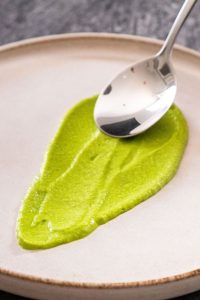
The Importance of Variety and Texture
Exposing babies to a wide variety of fruits and vegetables from a young age is crucial for developing healthy eating habits. Uncooked vegetable purees are a fantastic tool for achieving this variety. Here’s why:
- Taste Bud Exploration: Babies are born with the ability to taste all five basic tastes: sweet, sour, salty, bitter, and umami. Uncooked vegetables offer a wider range of flavors compared to delicious purees, which can become bland due to the cooking process. This helps expose babies to a broader taste spectrum.
- Texture Introduction: Uncooked vegetables can have a slightly different texture than cooked vegetables. This can be stimulating for babies as they learn to explore different mouthfeels. Remember, the puree should still be smooth and thin enough to prevent choking.
The American Academy of Pediatrics (AAP) recommends introducing solid foods between 4-6 months of age. However, it’s always best to consult with your pediatrician before starting your baby on solid foods. They can advise you on the best approach for your baby’s individual needs.
Beyond Purees: Exploring Finger Foods
As your baby gets older and develops their motor skills, you can introduce them to self-feeding opportunities with safe finger foods. Here are some tips for introducing finger foods:
- Choose soft, easy-to-grip foods. Steamed broccoli florets, ripe banana slices, or avocado wedges are all good options.
- Cut food into small pieces. This reduces the choking hazard.
- Supervise your baby closely during feeding time. This is important to ensure safety in case of choking.
Recipe Inspiration
Here are some age-appropriate finger food ideas for your baby:
- 6-8 Months: Steamed broccoli florets, ripe banana slices, avocado wedges, puffs made from cereal (check the label for age appropriateness).
- 8-10 Months: Soft diced cooked sweet potato, scrambled eggs, diced ripe pear, well-cooked pasta shells.
- 10-12 Months: Small whole wheat crackers, diced cheese, steamed carrot sticks, diced cooked chicken or tofu.
Remember: Always consult with your pediatrician before introducing any new foods to your baby, especially if they have any allergies or feeding difficulties.
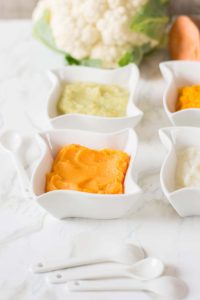
The Journey of Healthy Eating Habits
Introducing your baby to uncooked vegetable purees is a fantastic first step in establishing healthy eating habits. By prioritizing safety, offering a variety of flavors and textures, and making mealtime a positive experience, you’re setting your little one up for a lifetime of enjoying nutritious foods.
Uncooked vegetable purees have a shorter shelf life than cooked purees. Here are some tips for storing and handling them safely:
- Prepare only what your baby will eat at a single feeding. Leftovers can be stored in the refrigerator in an airtight container for up to 24 hours.
- Freeze purees for longer storage. Portion the puree into ice cube trays and freeze. Frozen purees can be stored for up to 3 months.

